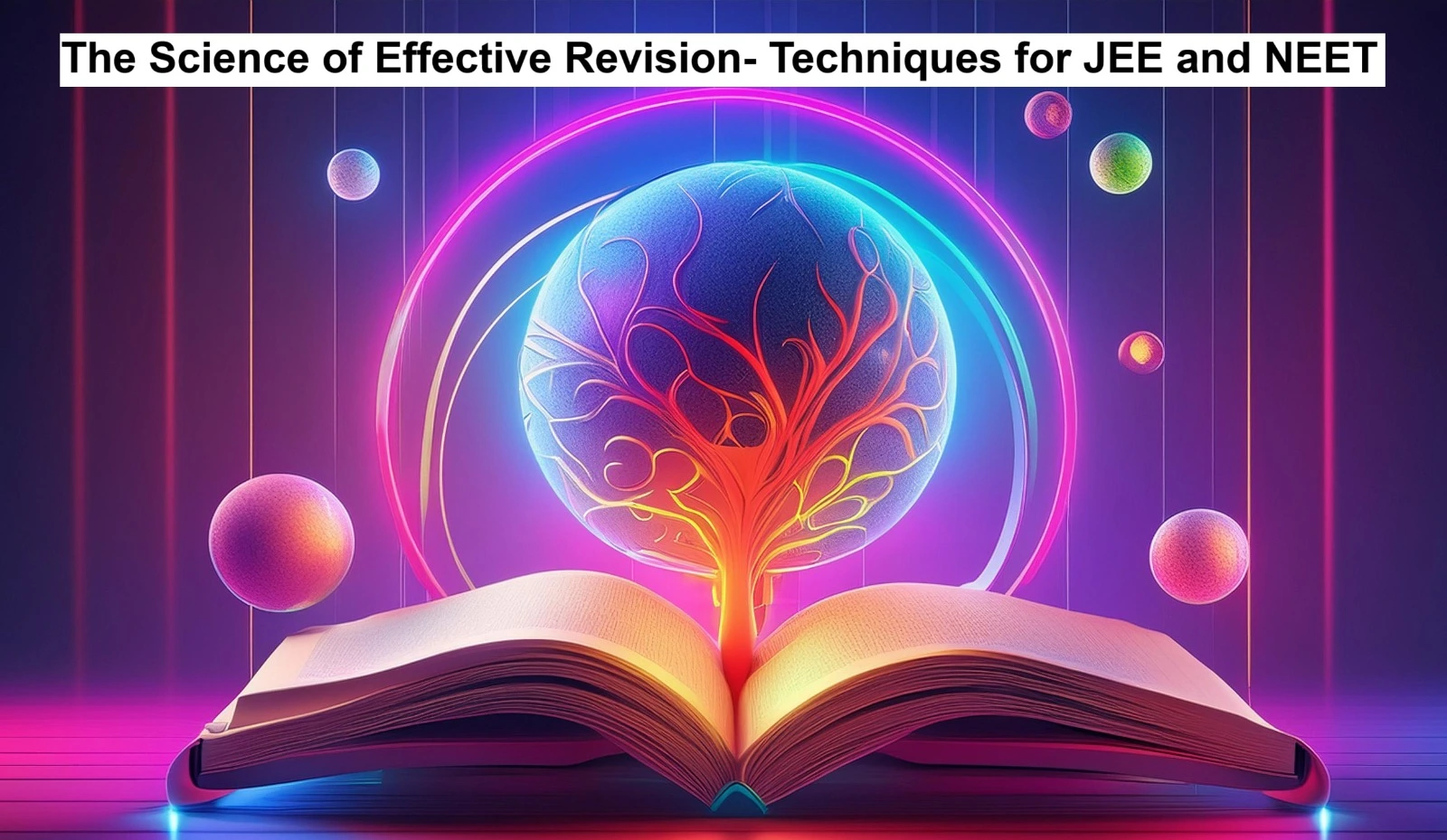Introduction
Effective revision is a cornerstone of success in competitive exams like JEE and NEET. Understanding the science behind efficient revision techniques is essential for maximizing retention, comprehension, and recall of crucial exam concepts. This guide explores the science of effective revision and provides techniques tailored to JEE and NEET aspirants to optimize their exam preparation.
The Cognitive Science of Learning
Spaced Repetition
Spaced repetition is a learning technique that involves reviewing information at increasing intervals over time. This approach capitalizes on the spacing effect, which suggests that spaced out practice leads to better long-term retention compared to massed practice.
Active Recall
Active recall involves actively retrieving information from memory rather than passively reviewing it. This technique strengthens memory retrieval pathways, enhances comprehension, and promotes long-term retention of information.
Interleaved Practice
Interleaved practice entails mixing different topics or subjects during study sessions rather than focusing on one topic at a time. This method enhances learning by promoting contextual retrieval and facilitating the discrimination between similar concepts.
Elaborative Encoding
Elaborative encoding involves relating new information to existing knowledge or creating meaningful associations to aid memory retention. By connecting new concepts to familiar ones, students deepen their understanding and reinforce learning.
Techniques for Effective Revision
Active Revision Sessions
Engage in active revision sessions where you actively recall and review key concepts, formulas, and problem-solving techniques. Use flashcards, practice quizzes, or teach the material to someone else to reinforce learning through active engagement.
Spaced Review Sessions
Implement spaced review sessions where you revisit previously studied material at spaced intervals. Create a revision schedule or use spaced repetition software to systematically review topics over time, ensuring long-term retention and mastery.
Practice with Past Papers
Practice solving past papers and mock tests under exam-like conditions to familiarize yourself with the exam format, question types, and time constraints. Analyze your performance, identify areas for improvement, and focus your revision efforts on weak areas.
Concept Mapping and Visualization
Create concept maps or visual representations of key concepts, relationships, and processes to enhance understanding and aid memory recall. Visualizing complex information helps organize thoughts, identify patterns, and reinforce learning through spatial processing.
Strategies for Integration and Application
Problem-Solving Practice
Devote ample time to problem-solving practice to develop problem-solving skills, analytical thinking, and application of theoretical knowledge. Work on a variety of problems across different difficulty levels to build confidence and competence in tackling exam questions.
Integration of Concepts
Focus on integrating concepts from different subjects or topics to develop a holistic understanding of interconnected principles. Identify common themes, relationships, and applications across subjects to deepen comprehension and facilitate cross-disciplinary thinking.
Real-World Application
Relate exam concepts to real-world phenomena, practical applications, or current events to make learning more meaningful and relevant. Understanding the practical implications of theoretical concepts enhances engagement, retention, and motivation for learning.
Conclusion
Effective revision techniques grounded in cognitive science principles are indispensable for JEE and NEET aspirants aiming to excel in competitive exams. By incorporating spaced repetition, active recall, interleaved practice, and elaborative encoding into their study routines, students can optimize their revision process, enhance comprehension, and achieve mastery of exam content.
FAQs
What is the spacing effect, and how does it relate to effective revision?
The spacing effect refers to the phenomenon where spaced out practice leads to better long-term retention compared to massed practice. By spacing out revision sessions over time, students reinforce memory retrieval pathways and enhance long-term retention of exam concepts.
How can active recall improve memory retention during revision?
Active recall involves actively retrieving information from memory rather than passively reviewing it. This technique strengthens memory retrieval pathways, enhances comprehension, and promotes long-term retention of information by engaging cognitive processes involved in memory consolidation.
What is interleaved practice, and how does it benefit exam preparation?
Interleaved practice involves mixing different topics or subjects during study sessions rather than focusing on one topic at a time. This method enhances learning by promoting contextual retrieval and facilitating the discrimination between similar concepts, leading to deeper understanding and improved retention.
How can students incorporate elaborative encoding into their revision process?
Students can incorporate elaborative encoding by relating new information to existing knowledge or creating meaningful associations. This technique involves making connections between concepts, visualizing relationships, and creating mnemonic devices to aid memory retention and comprehension.


Add Comment